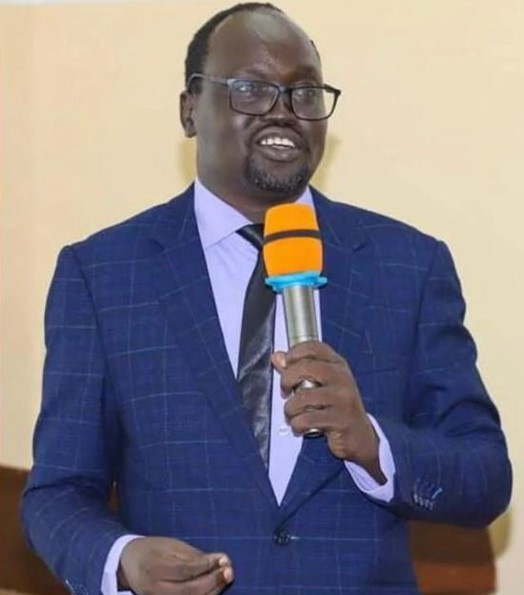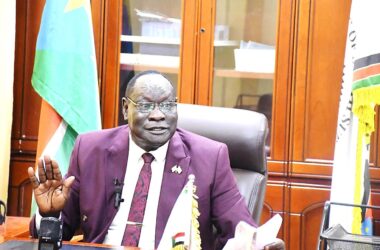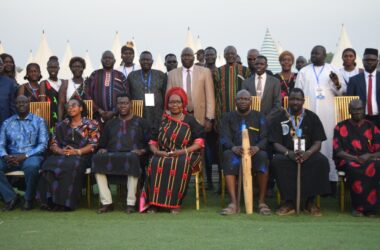By Alan Clement
Some stakeholders warned that elections in 2026 are unlikely due to the government’s failure to implement key parts of the 2018 agreement.
In an exclusive interview, the Chairperson person of the Coalition of Other Political Parties, Dr. Gai Chol Paul expressed doubt regarding the upcoming election.
He declared that the peace agreement continues to face a lot of challenges that threatened it’s implementation.
He accused the main peace parties of making unilateral decisions and betraying of the agreement’s principles.
Dr. Gai cited institutional breakdown, lack of political will, and financial constraints as signs of a deepening national crisis.
He cited the takeover of political positions by the SPLM and the continued political tensions as evidence that “there is no peace again.” According to him, over 90 percent of the peace agreement remains unimplemented after nearly seven years.
“The government itself admitted in March that only 10% of the peace agreement had been implemented over five years. That means 90% has never been touched,” he said.
Dr. Gai pointed to the arrest of First Vice President Riek Machar over the violence in Nasir as further evidence of the agreement’s failure, noting that even before the current crisis, implementation was minimal.
However, the politician urged all parties to convene a national dialogue to design a new framework for stability and transition arguing that the country cannot continue to rely on a failed framework.
Regarding the planned December, 2026 elections, the opposition leader dismissed government assurances, saying there are no signs of preparation.
“There are no elections in 2026. People are just lying to the public,” he said.
He further questioned the government’s financial capacity to conduct elections in 2026, noting that even basic expenditures are unaffordable. “If they cannot pay $100,000 for football players, how will they fund millions for elections?” he asked.
Political and policy analyst Boboya James Edmond reinforced Dr. Gai’s concerns offering a technical breakdown of the structural failures undermining the peace process and electoral roadmap, saying the peace process has stagnated because institutions that should steer transition have weakened.
“When the structure of the stakeholders is cracked, it tells us the peace agreement is not going in the right direction. The government cannot organize elections without a permanent constitution,” Boboya said.
He emphasized that elections cannot proceed without a permanent constitution, revised electoral laws, and unified security forces. “You cannot run elections without a unified police and army. The government needs between $1.5 billion to fund the constitution-making process, unification of forces, and elections but the national budget is only about $1.1 billion,” he said.
Boboya added that a lack of trust between the government and international partners has further undermined chances of external financial support, warning that “pretence and inaction” risk prolonging instability.
“Government is pretending that something is happening, but not adequately enough,” he noted adding that, “Where there is no proper government functioning, there will never be economic improvement or service delivery.”
Both the opposition leader and the analyst agree that unless South Sudan’s leaders recommit to genuine political dialogue, institutional reform, and inclusive governance, the country’s democratic transition will remain stalled beyond 2026.
South Sudan’s peace process has unravelled, and without urgent reforms, elections remain a distant hope. “We are just in a vacuum. Only two or three people are governing. Parliament is no longer functioning. The council of ministers hasn’t met since February,” Dr. Gai concluded.
As the December 2026 electoral deadline approaches, the absence of constitutional clarity, security reform, and financial readiness casts doubt on South Sudan’s democratic future. For now, the country remains suspended between a failed peace and an uncertain transition.



